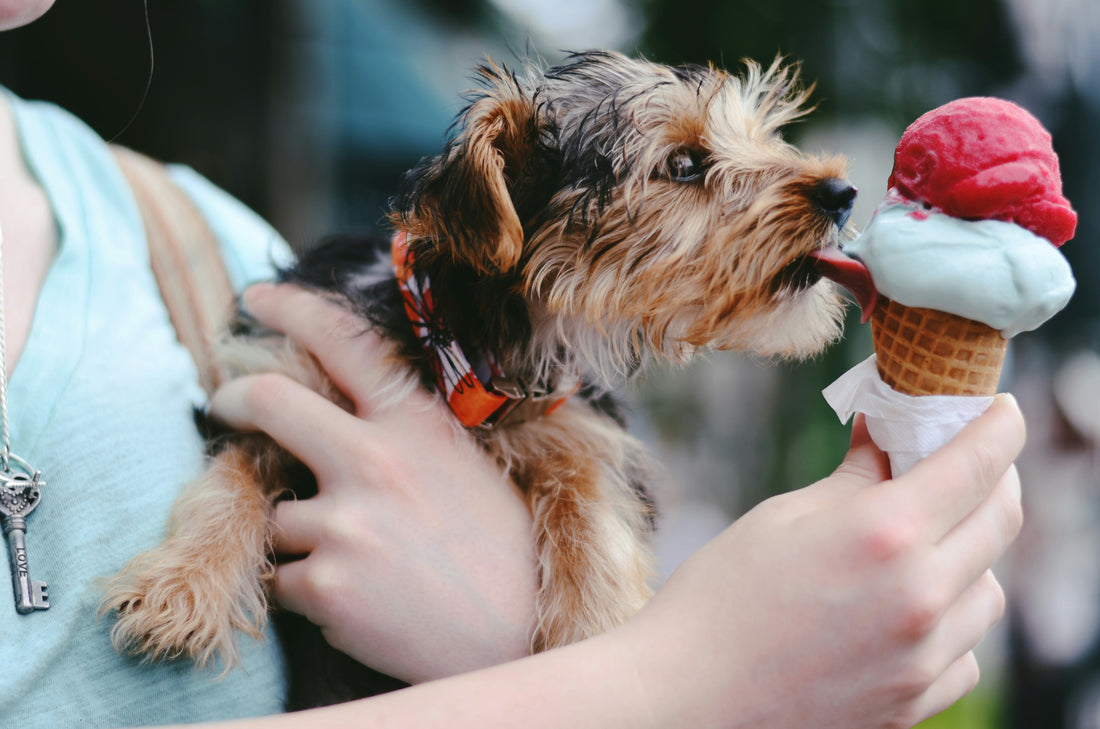As our faithful companions with their soulful eyes and ever-wagging tails accompany us through life, it's only natural to want to share some of our culinary delights with them. But amidst the tempting array of human foods, it's essential to distinguish between those that are safe and those that could pose a risk to our furry friends. Let's embark on a journey through the canine culinary landscape, exploring the delights that canines can safely enjoy and the potential dangers that lurk in certain human foods.
Safe and Nutritious Options:
Carrots: Crunchy and packed with vitamin A, carrots make an excellent snack for dogs. Not only do they promote dental health by reducing plaque, but they also support a robust immune system and a lustrous coat.
Apples: A crisp bite of apple provides dogs with a dose of vitamins A and C, along with dietary fibre for digestive health. However, be cautious of seeds, as they contain cyanide and should be removed.
Cooked White Rice: When a dog's stomach is feeling under the weather, plain white rice can provide a soothing and easily digestible option. Just be mindful of portion sizes, especially for diabetic dogs due to its impact on blood sugar levels.
Fish, Chicken, Pork: Lean proteins like salmon, chicken, and pork, when cooked thoroughly, offer dogs a protein-rich treat. They're not only delicious but also contribute to healthy muscles and overall well-being.
Unsalted Peanut Butter: Rich in protein, healthy fats, and vitamins, unsalted peanut butter makes for a tasty and nutritious treat. Just ensure it doesn't contain xylitol, a sweetener toxic to dogs.
Blueberries, Bananas, Watermelon: These fruits are bursting with antioxidants, vitamins, and hydration, making them perfect for occasional indulgences. Remove seeds and rinds as necessary to avoid choking hazards.
Plain Popcorn, Coconut Products: When prepared without additives, popcorn and coconut products can offer dogs a satisfying crunch and beneficial nutrients. Just watch out for unpopped kernels and high-fat content, respectively.
Proceed with Caution:
Avocado, Grapes, Raisins: These seemingly innocuous foods can pose serious risks to dogs, leading to gastrointestinal distress, kidney failure, and other complications. Avoid them altogether to keep your furry friend safe.
Chocolate, Coffee, Caffeine: Rich in methylxanthines, these substances can be lethal to dogs, causing vomiting, abnormal heart rate, seizures, and even death. Opt for dog-safe alternatives or treats formulated specifically for them.
Onions, Garlic, Chives: While they add flavory to our dishes, these members of the Allium family can wreak havoc on a dog's red blood cells, leading to anemia and other health issues. Keep them out of reach of your canine companion.
Xylitol, Alcohol: Found in sugar-free products and alcoholic beverages, xylitol and alcohol are highly toxic to dogs, causing liver failure, hypoglycaemia, and other life-threatening conditions. Be vigilant and ensure these substances are securely stored away.
Conclusion
In the intricate tapestry of canine cuisine, there are abundant options for treating our furry friends to delicious and nutritious snacks. By embracing safe choices and steering clear of harmful foods, we can ensure our beloved companions enjoy a lifetime of health and happiness by our side. Remember, when in doubt, consult with a veterinarian to provide the best care and nutrition for your canine companion.
Safe and Nutritious Options:
Carrots: Crunchy and packed with vitamin A, carrots make an excellent snack for dogs. Not only do they promote dental health by reducing plaque, but they also support a robust immune system and a lustrous coat.
Apples: A crisp bite of apple provides dogs with a dose of vitamins A and C, along with dietary fibre for digestive health. However, be cautious of seeds, as they contain cyanide and should be removed.
Cooked White Rice: When a dog's stomach is feeling under the weather, plain white rice can provide a soothing and easily digestible option. Just be mindful of portion sizes, especially for diabetic dogs due to its impact on blood sugar levels.
Fish, Chicken, Pork: Lean proteins like salmon, chicken, and pork, when cooked thoroughly, offer dogs a protein-rich treat. They're not only delicious but also contribute to healthy muscles and overall well-being.
Unsalted Peanut Butter: Rich in protein, healthy fats, and vitamins, unsalted peanut butter makes for a tasty and nutritious treat. Just ensure it doesn't contain xylitol, a sweetener toxic to dogs.
Blueberries, Bananas, Watermelon: These fruits are bursting with antioxidants, vitamins, and hydration, making them perfect for occasional indulgences. Remove seeds and rinds as necessary to avoid choking hazards.
Plain Popcorn, Coconut Products: When prepared without additives, popcorn and coconut products can offer dogs a satisfying crunch and beneficial nutrients. Just watch out for unpopped kernels and high-fat content, respectively.
Proceed with Caution:
Avocado, Grapes, Raisins: These seemingly innocuous foods can pose serious risks to dogs, leading to gastrointestinal distress, kidney failure, and other complications. Avoid them altogether to keep your furry friend safe.
Chocolate, Coffee, Caffeine: Rich in methylxanthines, these substances can be lethal to dogs, causing vomiting, abnormal heart rate, seizures, and even death. Opt for dog-safe alternatives or treats formulated specifically for them.
Onions, Garlic, Chives: While they add flavory to our dishes, these members of the Allium family can wreak havoc on a dog's red blood cells, leading to anemia and other health issues. Keep them out of reach of your canine companion.
Xylitol, Alcohol: Found in sugar-free products and alcoholic beverages, xylitol and alcohol are highly toxic to dogs, causing liver failure, hypoglycaemia, and other life-threatening conditions. Be vigilant and ensure these substances are securely stored away.
Conclusion
In the intricate tapestry of canine cuisine, there are abundant options for treating our furry friends to delicious and nutritious snacks. By embracing safe choices and steering clear of harmful foods, we can ensure our beloved companions enjoy a lifetime of health and happiness by our side. Remember, when in doubt, consult with a veterinarian to provide the best care and nutrition for your canine companion.

